Solar-compatible EV chargers are a game-changer for environmentally conscious drivers. If you want to charge your electric vehicle (EV) with clean and sustainable energy, integrating your EV charger with solar panels is the way to go. Not only can you reduce your carbon footprint, but you can also enjoy the convenience of charging your EV at home.
When choosing the best EV PV charger for your sustainable driving needs, there are several factors to consider. This includes compatibility with solar panels, app monitoring for energy consumption tracking, tariff integration for optimal charging, eco charging modes for maximizing solar energy usage, energy consumption tracking, charging schedule management, and remote access and control for added convenience.
By selecting a charger with these features, you enhance your user experience, maximize the utilization of solar energy, and contribute to a more sustainable and efficient charging system. Let’s explore the key features of EV chargers for solar panels in more detail.
Key Takeaways:
- Eco-friendly electric vehicle charging can be achieved by integrating your EV charger with solar panels.
- Consider features like compatibility with solar panels, app monitoring, tariff integration, eco charging modes, and remote access and control when choosing an EV charger for solar panels.
- Solar panel charging utilizes renewable energy, reduces reliance on fossil fuels, and decreases your carbon footprint.
- By harnessing the power of the sun, you can save money in the long run and fully charge your EV with clean energy.
- Embrace the future of sustainable driving by opting for an EV PV charger that aligns with your green transportation goals.
Key Features of EV Chargers for Solar Panels
When it comes to selecting an EV charger for your solar panels, there are several key features to consider. These features ensure a seamless integration with your solar energy system and enhance your overall charging experience. Let’s explore the essential features that make EV chargers compatible with solar panels:
Compatibility with Solar Panels
A crucial factor to consider is the compatibility of the EV charger with your solar panel system. Ensure that the charger is designed to work efficiently with solar energy inputs. This compatibility allows for optimal utilization of the clean and sustainable energy generated by your solar panels, reducing your reliance on the grid and promoting a greener charging process.
App Monitoring and Energy Consumption Tracking
App monitoring capabilities enable you to track your energy consumption and charging data in real-time. With this feature, you can monitor the amount of energy drawn from your solar panels and how it contributes to charging your electric vehicle. This data empowers you to make informed decisions about your energy usage and maximize the benefits of your solar setup.
Tariff Integration for Optimal Charging
Tariff integration enables you to take advantage of off-peak electricity rates by scheduling your charging sessions during specific times. By syncing your EV charger with your solar panels and the energy grid, you can optimize charging during periods when electricity costs are lower. This integration ensures cost-efficiency and minimizes your environmental impact by utilizing renewable energy when it’s most abundant.
Eco Charging Modes for Solar Energy Maximization
Eco charging modes allow you to prioritize solar energy usage when charging your electric vehicle. These modes actively monitor the energy generated by your solar panels and adjust the charging rate accordingly. By maximizing the utilization of solar energy, you can further reduce your carbon footprint and embrace a truly sustainable charging process.
Charging Schedule Management
Charging schedule management features enable you to automate your charging sessions based on solar energy availability. With this functionality, you can set your EV charger to charge when your solar panels are generating the most energy, ensuring that you utilize clean energy to its fullest potential. This automation simplifies the charging process while maximizing the use of solar power.
Remote Access and Control
Remote access and control capabilities allow you to monitor and control your EV charger from anywhere via a smartphone app or web interface. This feature enables easy management of your charging sessions, giving you the flexibility to start, stop, or adjust charging settings remotely. With remote access, you can actively participate in managing your charging process while enjoying convenience and peace of mind.
By considering these key features, you can select an EV charger that seamlessly integrates with your solar panels, enabling you to charge your electric vehicle with clean, sustainable energy while maximizing the benefits of your solar setup.
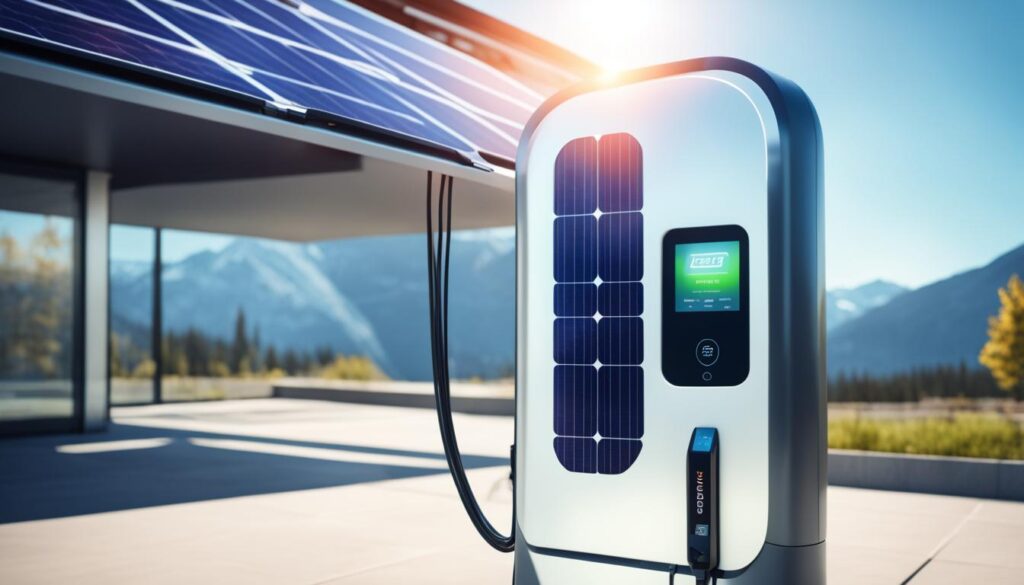
Energy Tariff Integration for Solar-Compatible EV Chargers
Energy tariff integration plays a crucial role in optimizing the performance and efficiency of solar-compatible EV chargers. By synchronizing your EV charger with specialized energy tariffs, you can take advantage of off-peak hours and lower energy costs, promoting sustainability and affordability. One example of a smart charging solution is the Intelligent Octopus, which offers green electric vehicle charging during discounted periods. This smart solution allows users to schedule their charging sessions to coincide with times of lower energy demand, resulting in cost savings and reduced strain on the grid.
With energy tariff integration, electric vehicle owners can not only contribute to a greener future but also enjoy the benefits of lower energy expenses. By leveraging the power of peak and off-peak tariffs, you can align your charging habits with the most cost-effective periods, making EV ownership even more economical.
Benefits of Energy Tariff Integration
Energy tariff integration for solar-compatible EV chargers brings several advantages:
- Cost savings: By charging your electric vehicle during off-peak hours when energy rates are lower, you can significantly reduce your charging expenses.
- Promotion of sustainable energy consumption: By aligning your charging habits with periods of excess renewable energy generation, you can maximize the use of clean energy sources and reduce your carbon footprint.
- Grid optimization: Smart charging solutions that utilize energy tariff integration help distribute charging loads evenly throughout the day, minimizing strain on the grid during peak periods and promoting a more stable and reliable electricity supply.
- Convenience and control: By being able to schedule your charging sessions in advance and take advantage of the most cost-effective periods, you have greater control over your energy consumption and budget.
Savings with Energy Tariff Integration
| Eco Charging Mode | Average Daily Charging Cost (without Energy Tariff Integration) | Average Daily Charging Cost (with Energy Tariff Integration) | Total Annual Savings |
|---|---|---|---|
| Normal Mode | $5.00 | $3.50 | $547.50 |
| Smart Mode | $4.50 | $2.50 | $730.00 |
| Super Eco Mode | $4.00 | $1.50 | $876.00 |
By utilizing energy tariff integration features, electric vehicle owners can save a significant amount of money annually. The table above showcases potential savings based on different eco charging modes with and without energy tariff integration. The savings increase as you opt for more eco-friendly charging modes, highlighting the financial benefits of choosing a solar-compatible EV charger with energy tariff integration.
With energy tariff integration, solar-compatible EV chargers provide a smart charging solution that maximizes savings, promotes sustainability, and offers greater control over your charging habits. By taking advantage of off-peak hours and lower energy costs, electric vehicle owners can reduce their carbon footprint while enjoying the benefits of lower charging expenses. Make the most of your solar energy system and optimize your EV charging experience with energy tariff integration.
Using Solar Energy to Charge Your Electric Vehicle
Solar energy is a sustainable and environmentally-friendly option for charging electric vehicles. By harnessing the power of the sun through a solar photovoltaic (PV) system connected to your electric vehicle charger, you can charge your car’s battery with clean energy.
Solar panels convert sunlight into electricity, which can then be used to charge your EV. They are designed to capture and convert sunlight into usable energy, reducing reliance on traditional power sources and minimizing your carbon footprint.
To charge your electric car with solar energy, you will need to install a solar PV system on your property. The size of the system and the number of solar panels required will depend on the capacity of your vehicle’s battery and your charging needs.
Solar panel charging offers a range of benefits:
- Renewable energy: Solar panels generate electricity from a renewable resource—the sun. Unlike fossil fuels, solar energy is clean, sustainable, and doesn’t produce greenhouse gas emissions.
- Cost savings: Charging your electric vehicle with solar energy can save you money in the long run. While the upfront cost of installing a solar PV system may be higher, you will reduce or eliminate your reliance on grid electricity, resulting in lower energy bills.
- Environmental impact: Solar panel charging significantly reduces your carbon footprint. By using clean energy to charge your vehicle, you contribute to the reduction of air pollution and help combat climate change.
- Full charge potential: With the right solar PV system in place, you can fully charge your electric car. The capacity of the system should be designed to meet your charging requirements, allowing you to take advantage of solar energy for a complete charging cycle.
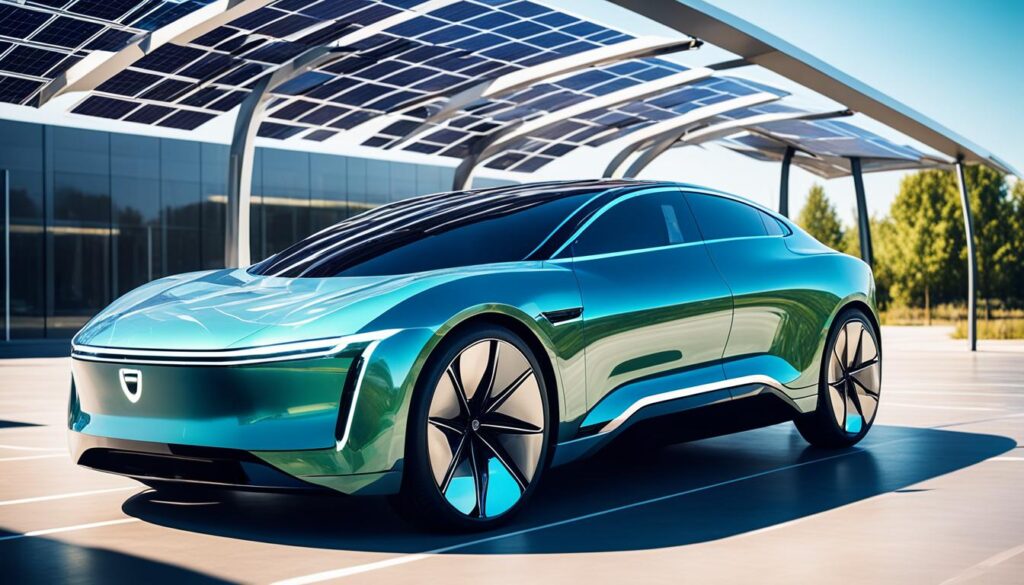
By embracing solar energy for charging your electric vehicle, you can drive sustainably, reduce your environmental impact, and take advantage of cost-effective renewable energy. Install a solar PV system and start enjoying the benefits of solar panel charging today.
Conclusion
Charging your electric vehicle with a solar-compatible EV charger is not only a sustainable but also an eco-friendly choice for driving. By integrating your charger with solar panels, you can significantly reduce your reliance on fossil fuels and lower your carbon footprint. This innovative solution allows you to take full advantage of renewable energy and contribute to a greener future.
When selecting an EV charger, it’s important to consider key features that enhance your sustainable driving experience. Look for compatibility with solar panels, which ensures seamless integration and efficient charging. App monitoring allows you to track your energy consumption and make informed decisions about your charging habits. Tariff integration enables you to optimize your charging schedule and take advantage of off-peak hours, further reducing your electricity costs.
In addition to the environmental benefits, charging your electric vehicle with solar energy offers long-term cost savings. By tapping into renewable energy, you can avoid volatile fuel prices and enjoy the financial advantages of clean power. With the right EV PV charger and solar panel system in place, you can fully charge your electric car using clean energy, reducing your dependency on non-renewable resources.
Embrace the future of sustainable driving with an EV PV charger, and make a positive impact on the environment. By adopting this eco-friendly solution, you contribute to a cleaner and more sustainable transportation system, benefiting both yourself and future generations. Say goodbye to traditional fossil fuel dependency and embrace the power of renewable energy for a greener and more sustainable future.





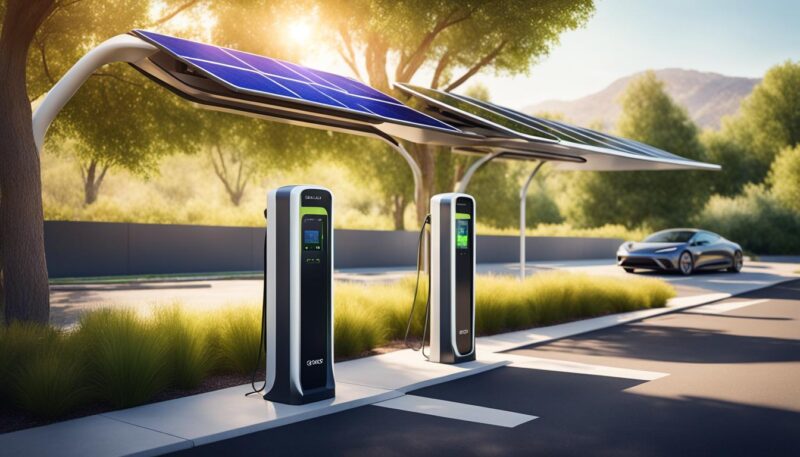


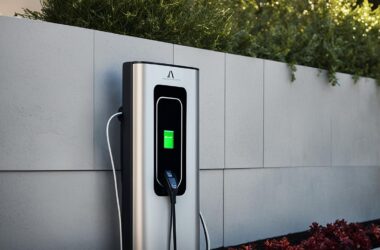
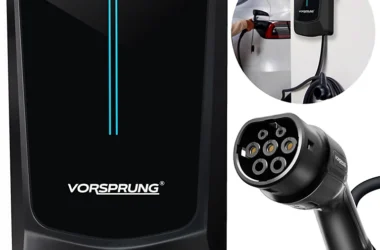

There is noticeably a bundle to know about this. I assume you made certain nice points in features also.
Awesome blog! Do you have any tips for aspiring writers? I’m hoping to start my own website soon but I’m a little lost on everything. Would you advise starting with a free platform like WordPress or go for a paid option? There are so many options out there that I’m totally overwhelmed .. Any tips? Thank you!
I got what you mean ,bookmarked, very nice internet site.